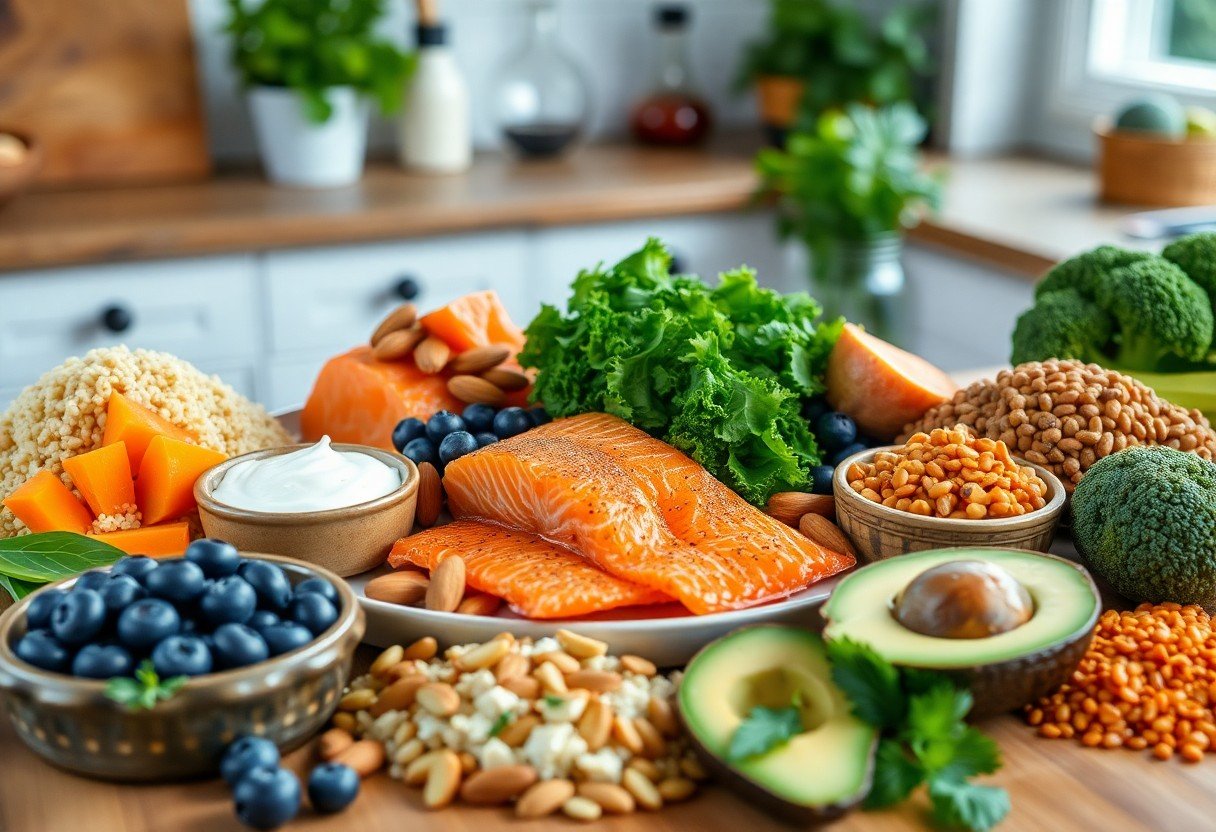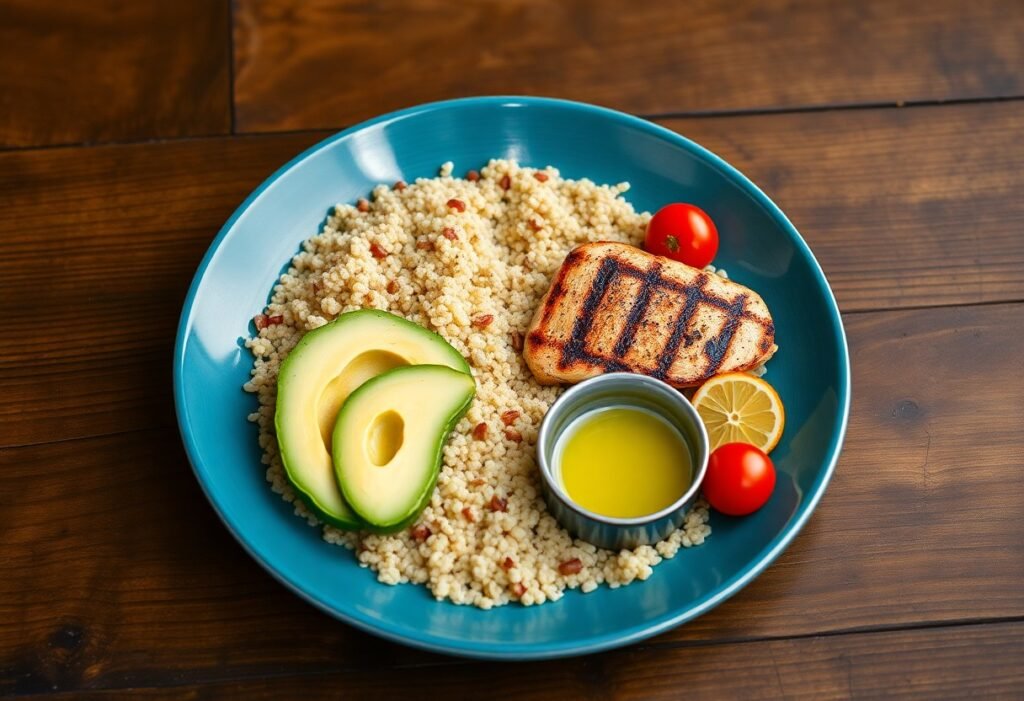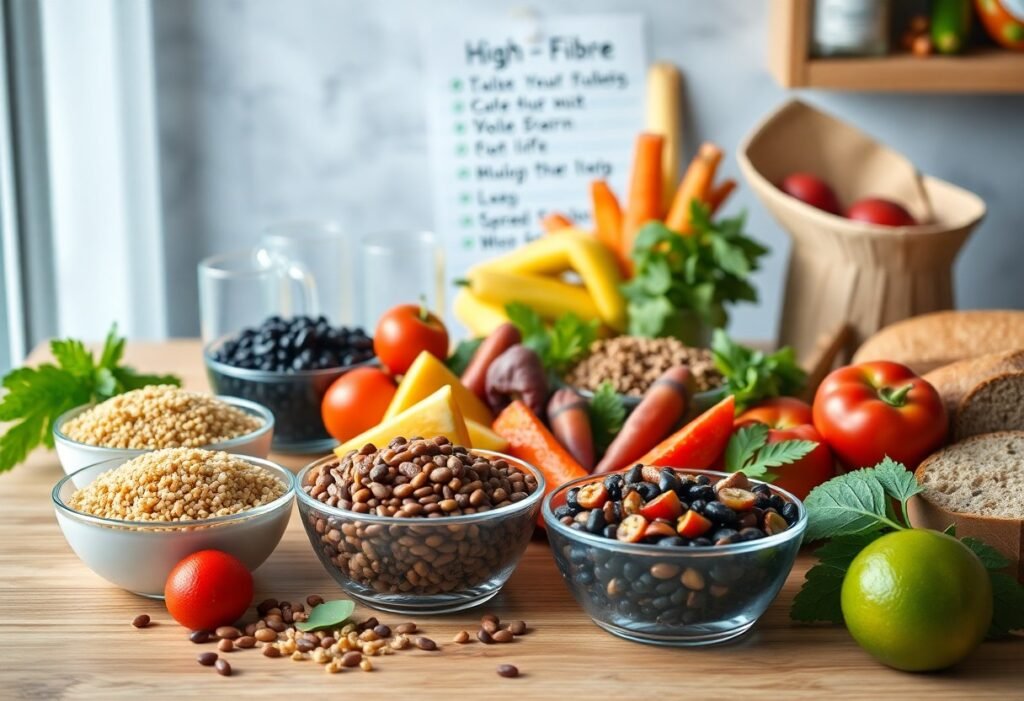It’s time to elevate your eating habits with the top 10 nutrient-dense foods that experts recommend for 2025. Incorporating these foods into your diet can lead to enhanced health benefits, including improved energy levels and better overall wellness. From fiber-rich options to antioxidant-packed superfoods, you’ll discover selections that not only taste great but also support your long-term health. This guide will empower you with choices that make a significant impact on your daily nutrition.
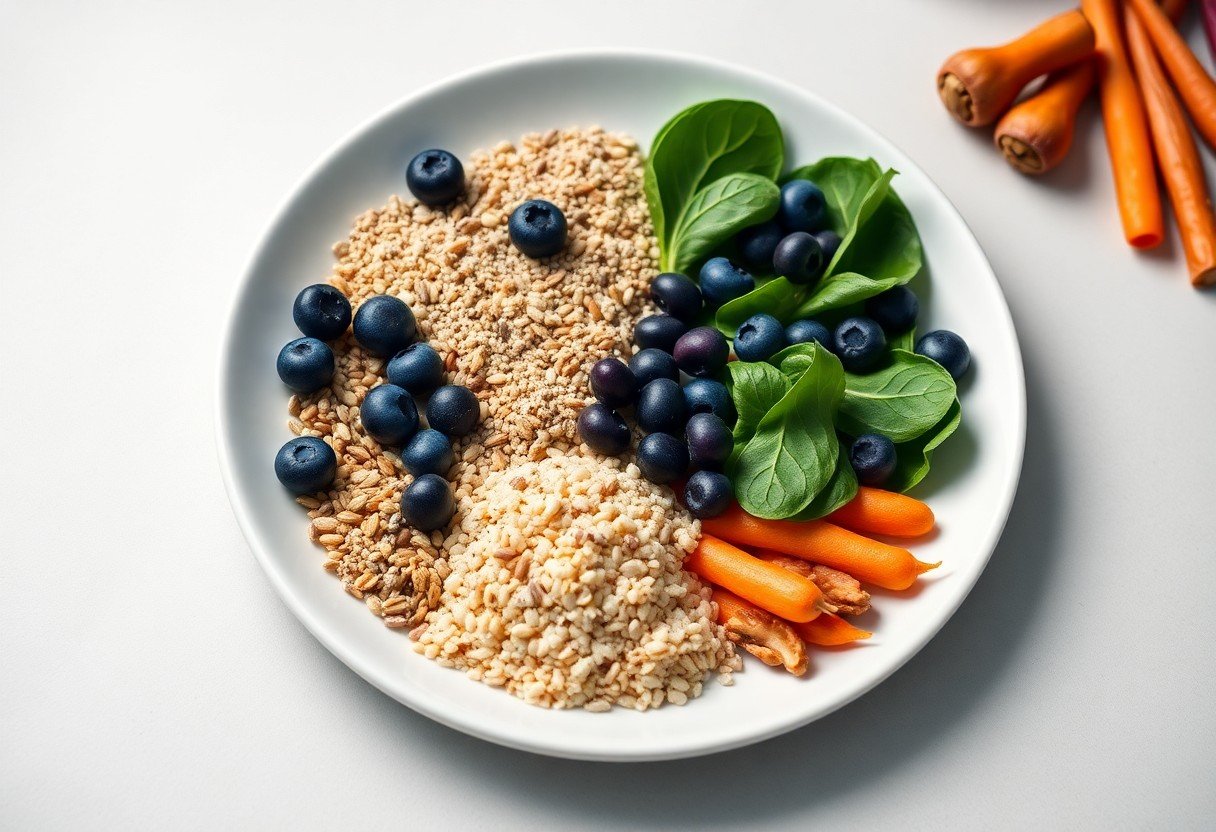
Key Takeaways:
- Focus on plant-based foods like leafy greens and legumes for high nutrient content.
- Incorporate fatty fish for omega-3 fatty acids and cardiovascular benefits.
- Choose whole grains over refined options to enhance fiber intake and overall health.
Leafy Greens
Spinach
Spinach is a powerhouse of nutrients that you should include in your diet. Packed with vitamins A, C, and K, it supports your immune function and promotes healthy skin. Additionally, its high iron content is vital for energy production and maintaining strong muscles. You can easily incorporate spinach into smoothies, salads, or cooked dishes for a nutrient boost.
Kale
Kale is often termed a superfood due to its dense nutrient profile. This leafy green is rich in vitamins A, C, and K, along with minerals like calcium and magnesium. Its high antioxidant content helps combat oxidative stress and may reduce the risk of chronic diseases. You can enjoy kale raw in salads or smoothies, or cooked as a side dish for a nutritious addition to your meals.
Kale’s fiber content is significant, promoting digestive health and helping you feel full longer. Additionally, it contains compounds that may assist in lowering cholesterol levels and improving heart health. When choosing kale, look for vibrant, crisp leaves, as they indicate freshness and optimal nutrient levels. Incorporate kale into your diet to harness its wide-ranging health benefits.
Berries
Blueberries
Blueberries are packed with antioxidants, vitamins, and minerals, making them a powerhouse for your health. Incorporating these tiny fruits into your diet can enhance brain function and reduce the risk of heart disease. Their vibrant color signifies a wealth of nutrients that contribute to your overall well-being.
Acai
Acai berries are celebrated for their high antioxidant content, particularly anthocyanins, which promote heart health and may aid in weight loss. These berries not only support healthy skin but also bolster the immune system. Adding acai to your diet can be a vibrant way to increase your nutrient intake.
Additionally, acai berries have been linked to improved cholesterol levels and enhanced cognitive function. Their rich fatty acid profile provides healthy fats that are beneficial for your body. However, it’s necessary to be cautious about the form you consume, such as sugary acai bowls or processed products that may undermine their benefits. Opt for pure acai or freeze-dried options to maximize your health outcomes.
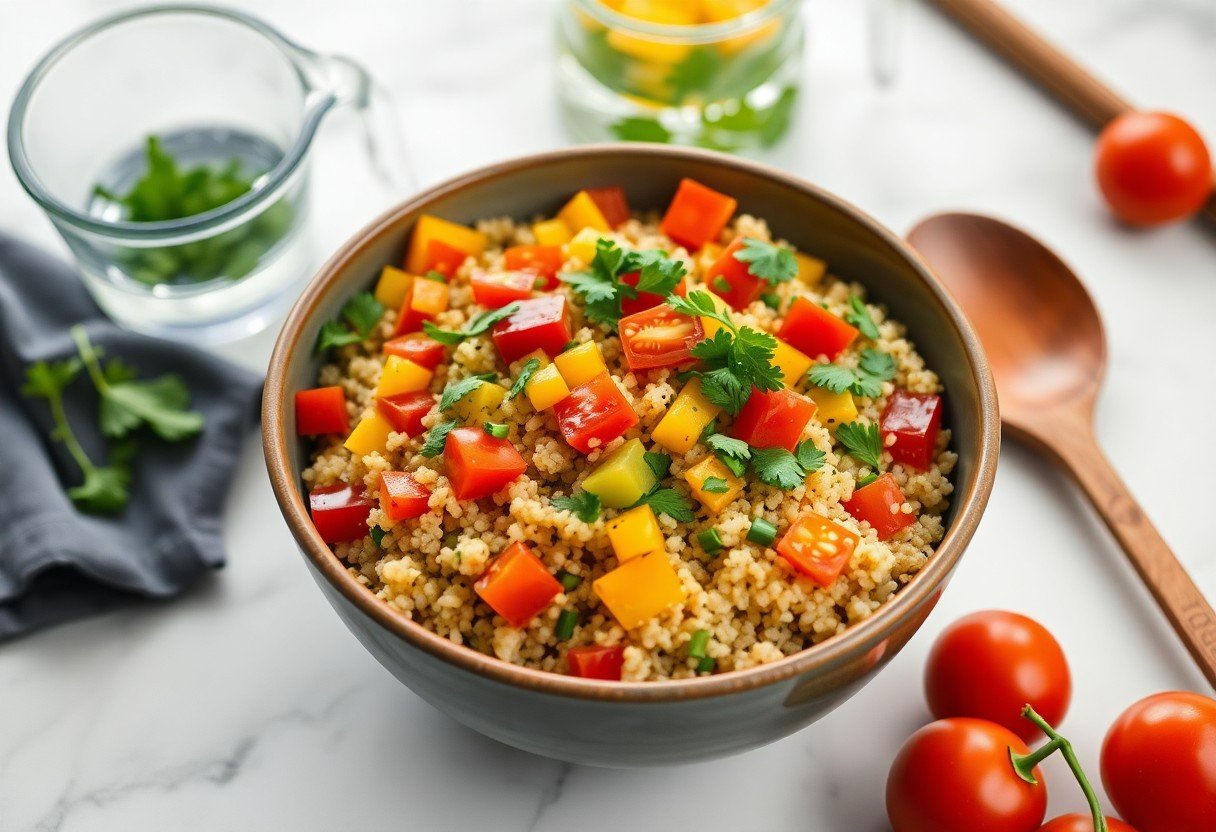
Quinoa
Protein-rich
Quinoa is an excellent source of plant-based protein, containing all nine necessary amino acids, making it a complete protein. This characteristic supports muscle repair and growth, which is beneficial for your overall health. Incorporating quinoa into your meals can help you meet your daily protein needs, especially if you follow a vegetarian or vegan diet.
Gluten-free
For those with gluten sensitivity or celiac disease, quinoa is a safe and nutritious grain alternative. Its naturally gluten-free composition allows you to enjoy a variety of dishes without the adverse effects associated with gluten consumption.
When you choose quinoa, you can enjoy diverse recipes while avoiding gluten-related issues. This whole grain is not only safe for those with gluten intolerance, but it also provides a wealth of nutrients such as fiber, vitamins, and minerals. Opting for quinoa allows you to maintain a nutritious diet without compromising on taste or texture.
Salmon
Omega-3 Fatty Acids
Salmon is an excellent source of omega-3 fatty acids, which are necessary for your health. These fats play a vital role in reducing inflammation and supporting brain function. By incorporating salmon into your diet, you increase your intake of DHA and EPA, the most beneficial types of omega-3s, contributing to overall well-being.
Heart-Healthy
Including salmon in your regular diet can significantly enhance your heart health. The omega-3 fatty acids in salmon help lower triglycerides and keep your blood pressure in check, reducing your risk of heart disease. A diet rich in these healthy fats supports better circulation and overall cardiovascular function.
Moreover, salmon is loaded with valuable nutrients that contribute to your heart health. The combination of protein, vitamins, and minerals in salmon offers additional benefits, such as lowering bad cholesterol levels and providing antioxidants. Regular consumption of salmon can lead to a stronger heart and improved arterial health, ensuring your heart remains in optimal condition. Eating salmon frequently supports not just your heart but your entire body’s well-being.

Sweet Potatoes
Sweet potatoes are a versatile superfood that pack a nutritional punch, making them a favorite among dietitians. Rich in vitamins and minerals, they can be easily incorporated into your meals. Check out 10 great health foods for more insights on nutritious options.
High Fiber
Sweet potatoes are an excellent source of dietary fiber, which aids in digestion and helps maintain a healthy gut. By adding these to your diet, you promote a feeling of fullness that can assist in weight management.
Nutrient-dense
Not only are sweet potatoes packed with vitamins A and C, but they also provide necessary minerals like potassium and magnesium. This combination of nutrients enhances your immune function and overall health.
Sweet potatoes’ vibrant orange hue indicates their rich content of beta-carotene, an antioxidant that converts to vitamin A in the body. This nutrient is vital for optimal vision, skin health, and immune support. Additionally, sweet potatoes contain various B vitamins that assist in energy metabolism, making them a smart choice for sustained vitality.
Greek Yogurt
Probiotic-rich
Greek yogurt is an excellent source of probiotics, beneficial bacteria that support your gut health. Regular consumption can enhance d digestion and boost your immune system. Incorporating Greek yogurt into your diet promotes a diverse gut microbiome, which is crucial for overall health and well-being.
High protein
With its generous protein content, Greek yogurt is a great option for building and repairing muscle tissue. Each serving typically contains around 15 to 20 grams of protein, making it an ideal choice for those looking to increase their protein intake.
Choosing Greek yogurt means you are selecting a high-quality protein that can help support your fitness goals. The combination of protein and probiotics in Greek yogurt also contributes to satiety, helping you feel fuller for longer. This can be beneficial for weight management or muscle gain, ensuring you are fueling your body effectively while enjoying a delicious and versatile food.
Legumes
Lentils
Lentils are a powerhouse of protein and fiber, making them an ideal food for those seeking to improve their overall health. They are packed with crucial vitamins and minerals, including iron, folate, and magnesium. Incorporating lentils into your diet can help in maintaining stable blood sugar levels, supporting heart health, and promoting digestive wellness.
Chickpeas
Chickpeas, also known as garbanzo beans, are an excellent source of plant-based protein and fiber, making them a staple in many diets. They provide a range of nutrients, including potassium, iron, and vitamin B6, which can support your overall health. Their versatility allows you to enjoy them in salads, soups, or as hummus.
In addition to their nutritional benefits, chickpeas can play a significant role in weight management due to their ability to enhance satiation and control appetite. The soluble fiber in chickpeas helps lower cholesterol levels, reducing the risk of heart disease. By including chickpeas in your meals, you can boost your intake of plant-based protein while enjoying a delicious and nutritious food option.
Nuts
Almonds
Almonds are a powerhouse of nutrients that can enhance your health. They are rich in healthy fats, fiber, protein, and important vitamins like Vitamin E. Incorporating almonds into your diet may help reduce cholesterol levels and support heart health, making them a smart snack choice for your overall well-being.
Walnuts
Walnuts are another excellent addition to your nutrient-dense diet. They are high in omega-3 fatty acids, antioxidants, and provide a variety of vitamins and minerals. Eating walnuts regularly may improve your brain health and support cognitive function, contributing to your longevity and quality of life.
Walnuts stand out due to their high levels of alpha-linolenic acid (ALA), a plant-based omega-3 fatty acid linked to heart health benefits. They may also aid in reducing inflammation and improving blood sugar control. Integrating walnuts into your meals, whether in salads or as a topping, can significantly benefit your health by supporting cardiovascular health and offering a satisfying crunch to various dishes.
Seeds
Chia Seeds
Chia seeds are a powerhouse of nutrients that can enhance your diet significantly. With their high content of omega-3 fatty acids, fiber, and protein, these tiny seeds can help you maintain optimal health. When soaked, they expand, aiding in hydration and making them a versatile addition to smoothies, yogurt, or puddings.
Flaxseeds
Flaxseeds are rich in lignans, fiber, and alpha-linolenic acid (ALA), a type of omega-3 fatty acid. Incorporating flaxseeds into your meals can support digestive health and may offer cardiovascular benefits. Ground flaxseeds are more easily absorbed for maximum nutrient benefit.
When you consume flaxseeds, you tap into their potential anti-inflammatory properties and antioxidant effects. The soluble fiber can help regulate blood sugar levels and lower cholesterol. It’s important to ground them for better nutrient absorption; whole seeds can pass through your system undigested. Use them in baking, smoothies, or as an egg substitute for vegan recipes to enjoy their full benefits.
Avocado
Healthy fats
Avocados are an excellent source of monounsaturated fats, which are beneficial for heart health. Incorporating them into your diet can help to reduce bad cholesterol levels while increasing the good kind. This makes avocados a smart choice for enhancing your overall lipid profile, promoting better cardiovascular health and improving nutrient absorption from other foods.
Nutrient-rich
Beyond their healthy fats, avocados are packed with vital vitamins and minerals. A single serving provides significant amounts of potassium, vitamin K, vitamin E, and folate. These nutrients contribute to various bodily functions, including blood pressure regulation and skin health. Including avocados in your meals not only adds creaminess but also boosts your nutritional intake.
The potassium in avocados can help manage blood pressure, contributing to cardiovascular wellness, while vitamin K supports bone health and plays a role in wound healing. Additionally, vitamin E acts as an antioxidant, protecting your cells from damage. Incorporating avocados into your daily meals can prove advantageous for maintaining overall health and well-being.
To wrap up
Now that you’re aware of the 10 nutrient-dense foods dietitians recommend in 2025, you can make informed choices to enhance your diet. Incorporating these foods into your meals can improve your overall health and well-being. Focus on variety and balance to ensure you’re getting a wide range of vitamins and minerals. By prioritizing these nutrient-rich options, you empower yourself to lead a healthier lifestyle.
FAQ
Q: What are nutrient-dense foods?
A: Nutrient-dense foods are those that provide a high amount of vitamins and minerals relative to their calorie content. They support overall health and can help manage weight.
Q: What are some examples of nutrient-dense foods recommended by dietitians in 2025?
A: Dietitians recommend foods such as leafy greens, berries, quinoa, legumes, nuts, seeds, fatty fish, sweet potatoes, Greek yogurt, and eggs for their high nutrient profiles.
Q: How can nutrient-dense foods contribute to a balanced diet?
A: Incorporating nutrient-dense foods into meals helps ensure adequate intake of important nutrients, supports energy levels, and can reduce the risk of chronic diseases.
Q: Can nutrient-dense foods aid in weight management?
A: Yes, nutrient-dense foods typically have fewer calories and high fiber content, helping individuals feel full longer while providing important nutrients, making them effective for weight management.
Q: What are the benefits of including fatty fish in a nutrient-dense diet?
A: Fatty fish, such as salmon and mackerel, are rich in omega-3 fatty acids which support heart health, brain function, and can reduce inflammation in the body.


